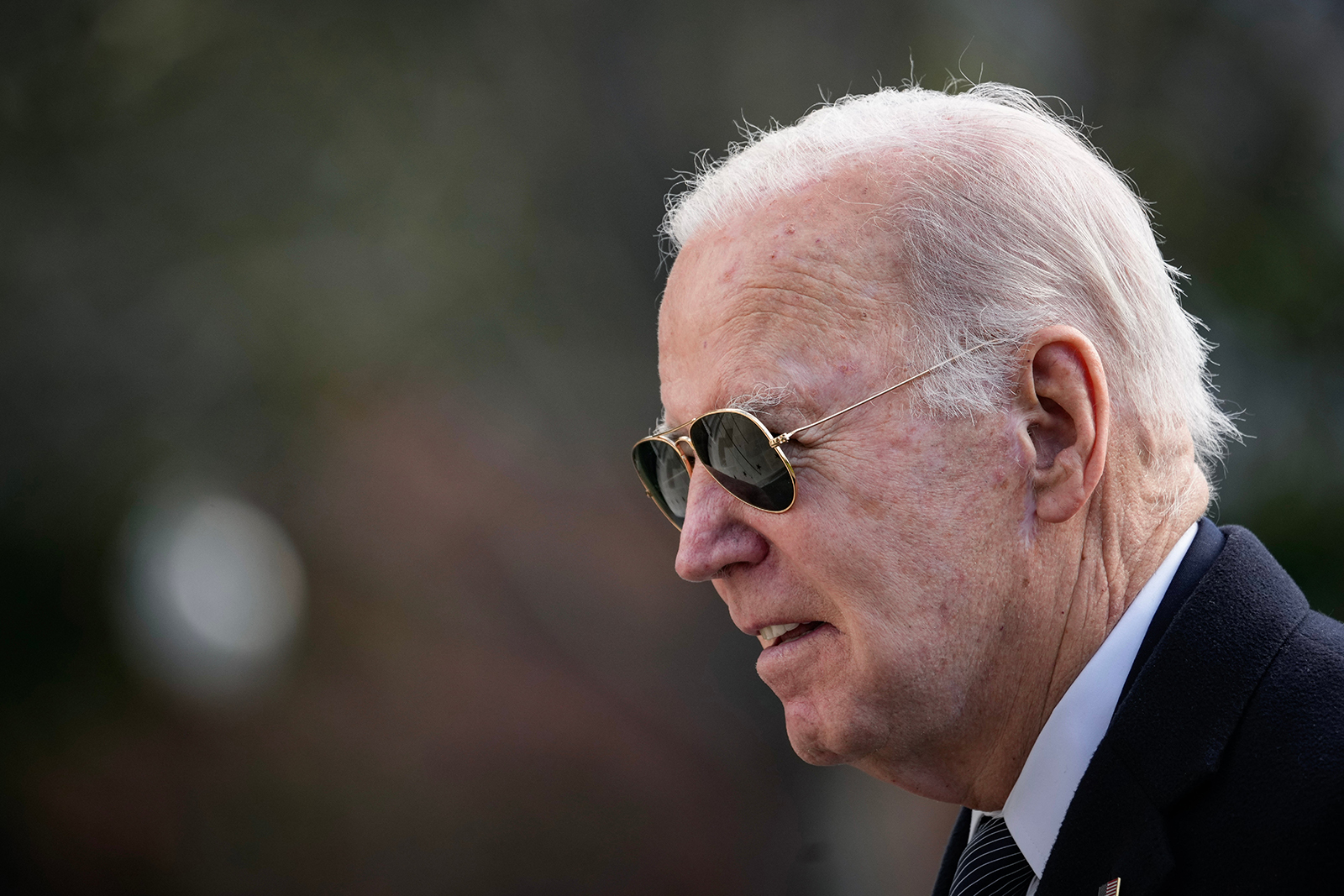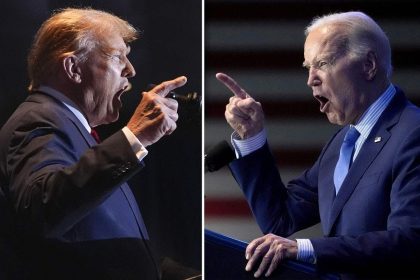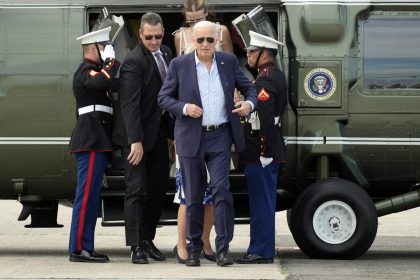[ad_1]
What may be expected from US President Joe Biden’s administration? Certainly not an attempt at unity or bipartisanship, despite claims he made in his inaugural speech.
In that document, cheek by jowl with protestations of dovish democratic reconciliation, and emphasized in the manner of the speech’s presentation, we see implied charges against the former Donald Trump administration of racism, and (support for) white supremacy; Biden said his “cause†had “prevailed†in favor of “democracy.â€
One is tempted to ask, “prevailed†against what? Against the 74 million people who voted for Trump? Against the (truly deplorable) mob that violated the Capitol building? But, since they were not mentioned, was he also against the equally deplorable mobs that raged in multiple cities (and still do) during the politically hot summer months preceding the election?
It seems the divide that separates left from right in America will persist. What form will it take? The question is too big to take on in its entirety, so let us confine ourselves to the fight over Biden’s extraordinarily large number of executive actions.
This process, potentially divisive, is not well understood within the US, to say nothing of the rest of the world (ROW). In particular, let us see just how the spirit of division and disagreement will continue, in consequence of executive acts.
First, let us learn what an executive action is – and as well, an executive order along with an (international) executive agreement.
All these acts sometimes “smell like†laws of the sort made in the past by unconstrained kings whose mere words, be they ephemeral, ill-considered, vengeful or merely silly, had the force of law. Critics of American constitutional traditions, political opponents of presidents who undertake these acts, and non-Americans may conclude that (in the specific case of Joe Biden) that the US has returned to long-ago-repudiated forms of authoritarian government.
While President Biden’s dramatically flourished pen during these proceedings is a veritable signal that he is certainly not acting to produce unity, in the sense that he will not suggest to Congress compromise alternatives to actions taken previously by Trump, and is instead reversing, tossing out, or utterly negating policies of his predecessor in office.
Oil pipeline construction is halted, significantly diminishing the future degree of American energy independence. Onerous green regulations stemming from the Paris Climate Agreement will raise the cost of living for many Americans, and affirmative-action racial preferences will replace quiet colorblind governmental promotional policies.
Yes, such have been the intentions of President Biden: These things are the “consequences of elections.â€Â But the “other side†has ways to fight. The fights will occur because of the subtleties involved in such presidential acts. The subtleties appear when we look more deeply into the true nature of such acts.
Executive actions are built on the foundations of standard laws. An executive action cannot create a law, cannot change an existing law, and must remain, in its effects, entirely within the “envelope†of law as it has been created in the legislature and interpreted and explained by way of judicial comments on the foundational law.
The stony reality of such laws made in the legislature and explained in court cannot be lawfully affected by any particular executive action. In other words, the president is an executor of the law in the sense that a policeman enforces existing speed law when he pulls you over. But the cop cannot claim you were speeding when going 50mph if the posted speed limit is 60mph. But of course, if he is a corrupt cop he may charge you with reckless driving instead, particularly if you don’t pay a sufficient bribe.
The president has constitutional authority to interpret the law (and he may well do so incorrectly or imperfectly, corruptly or self-interestedly), but his interpretations are absolutely subject to oversight, correction, reversal and extinction in the courts.
Courts will act to frustrate executive actions upon review caused by and following upon cases brought by persons having standing and who have the right to claim that the president’s actions were inconsistent with the true intent of the law being “acted upon.â€
Yes, the Republicans have the ability (given they have standing)Â to challenge in court every one of the 22 executive actions taken by Biden during his first week in office. (Trump signed four such actions during his first week.)
Executive orders (EOs) are slightly different. An EO does not necessarily unconstitutionally slip over the line, becoming a  legislative or judicial act. The executive, that is the president, has the constitutional power to instruct or order or command subordinates who are part of the executive branch.
You are familiar with the term “commander-in-chief.â€Â Commands to the military are EOs that are exclusively possessed by the executive. If the president were to unwisely command a soldier to commit a “crime against humanity,†his EO could be challenged, but in the ordinary case, military commands are his to make.
But certain EOs can bring adverse consequences to the executive. President Richard Nixon resigned rather than face likely impeachment and removal for giving orders to the Watergate “burglars.â€Â If President Biden gives an EO to the Justice Department (a part of the executive branch, thus under his control) telling it to quash or forget about the investigation into Hunter Biden’s money-laundering scheme, Republicans may extract a high price from him.
Executive agreements (EAs) are concluded between the president (and only the president) and foreign leaders or governments. They have political force, but they do not have legal force. A later president, or a president who has second thoughts, may end them.
They would have likely been considered unconstitutional before 1937, when the US Supreme Court ruled they had the force of a sort of semi-treaty. The historical reasons for this ruling may have been the oncoming war of the period.
Whatever was the court’s motivation, shortly before the US joined in World War II, president Franklin Roosevelt used an executive agreement to send 50 US Navy destroyers to the UK, to help the British fight the Atlantic War.
Executive agreements, realistically speaking, are used by US presidents who know the underlying international “bargain†does not have enough support domestically to get the two-thirds-approval Senate vote needed to conclude a legally binding treaty. Since real treaties, according to the language of the US constitution, have the same high legal standing as does the constitution itself, perhaps it is a good thing that executive agreements are much more common in US politics than are treaties.
The Paris “Green Accord†(as I choose to call it), to which Biden has re-entered via an EA, has the potential to burden US citizens with German-like costs for things like gasoline (some $1.60 per liter in small-town Germany versus 66 cents in Texas) or electricity (30 cents a kilowatt in rural Germany versus 8 cents in Florida).
An interesting constitutional debate will ensue if Republicans go to court, saying (assuming they individually have been harmed by the EA, and so have legal standing to sue) this not-quite-real-treaty should be voided.
So we see that President Biden’s executive actions, agreements and orders do not have the full force of law, but are really composed of politics, daring, and hutzpah, all those parts being liable to attack in real courts or the court of public opinion.
It is highly likely that such resistance will occur (caused by him). Undeterred by logic, Biden will follow the vindictive course that has been foolishly adopted by most leaders of his party. Real unity and bipartisanship might be possible. But unity means the now disputable actions are abandoned.
That would give rise to agreed-upon real legislation, turning mere vindictive words into full law and true treaty. One does not have to be a supporter of Donald Trump to prefer compromise over continued political infighting.
Tom Velk is a libertarian-leaning American economist who teaches and lives in Montreal, Canada. He is the chairman of the North American Studies program at McGill University and a professor in that university’s Economics Department.
[ad_2]












